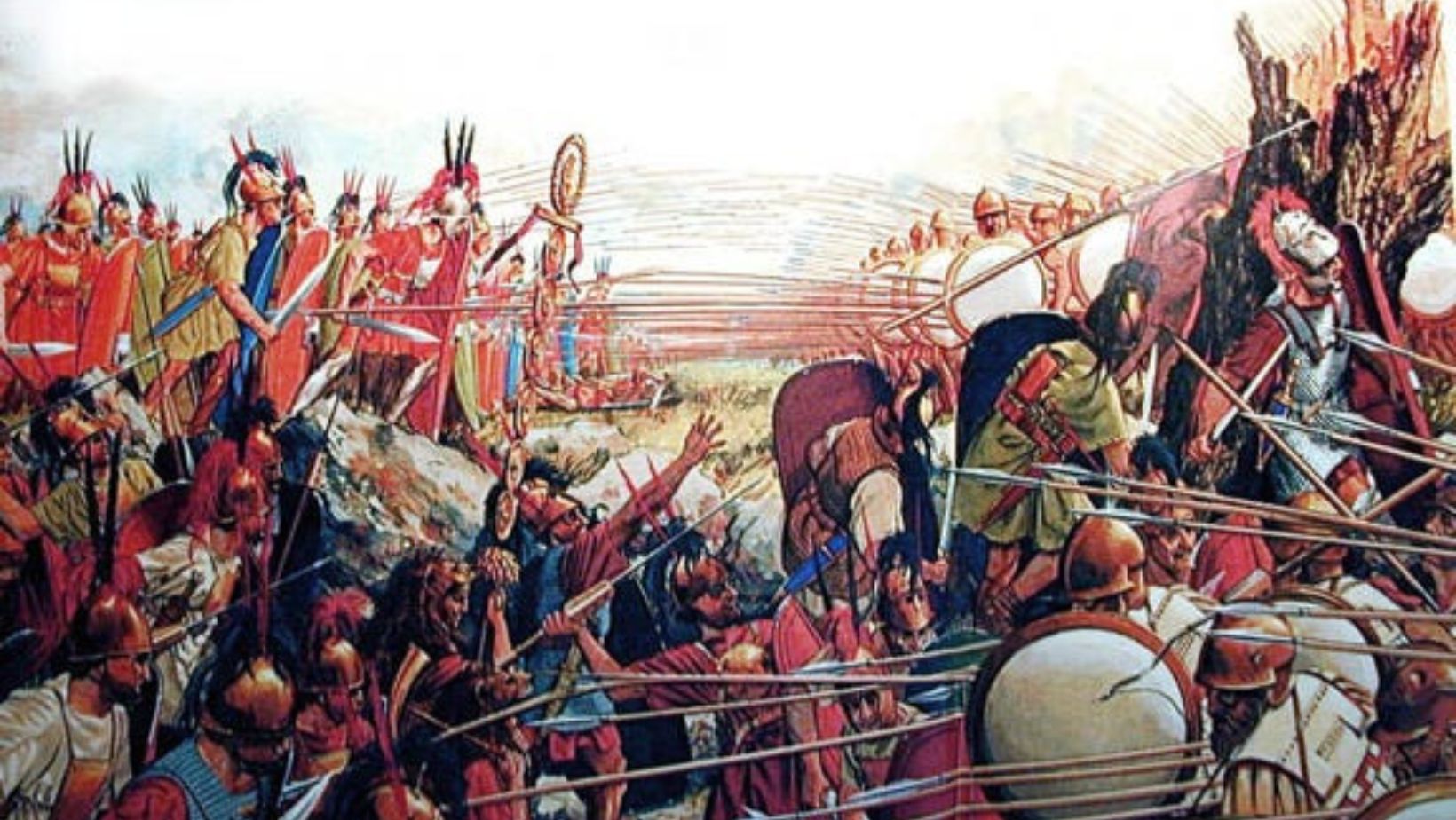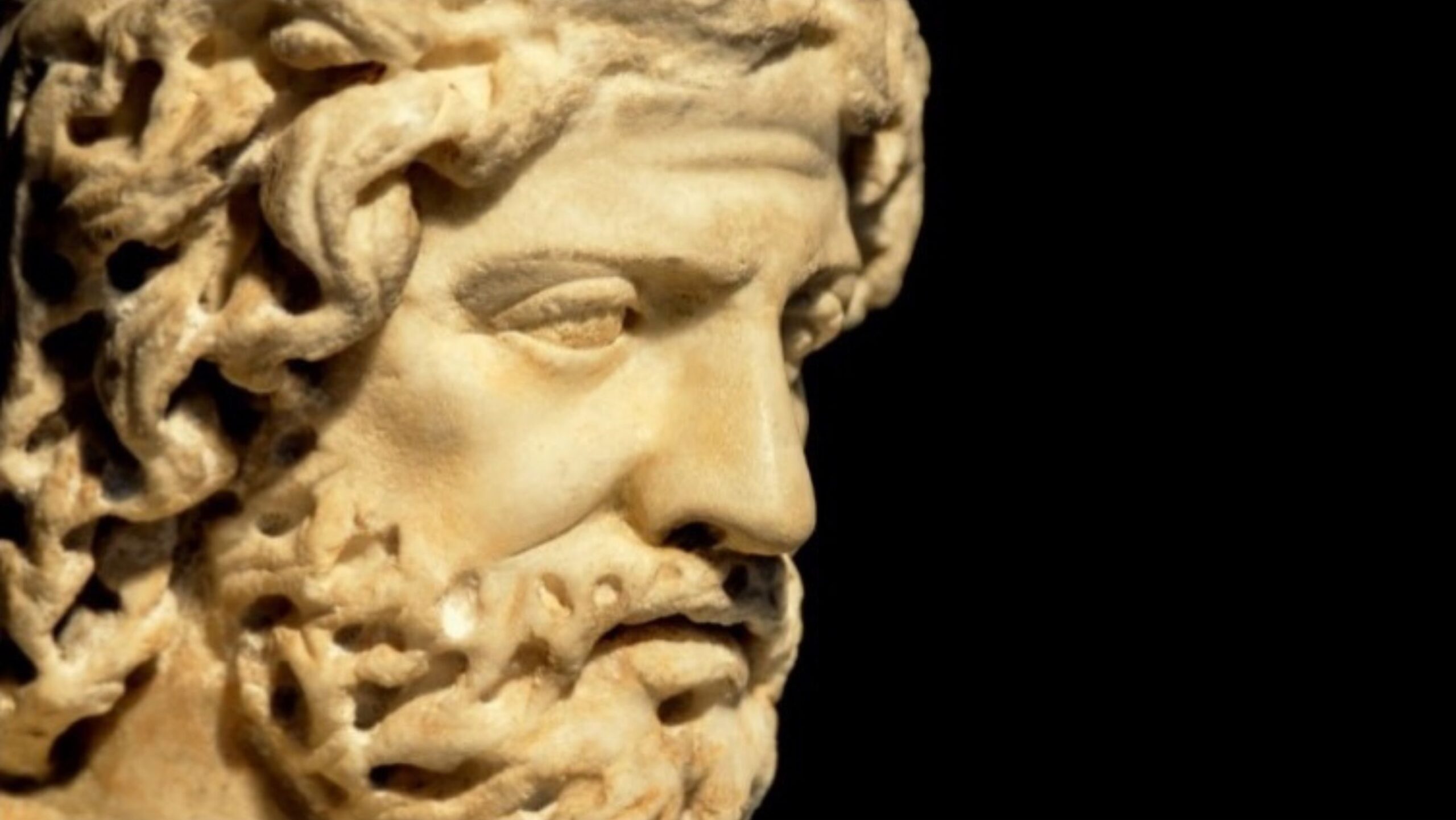The Historiography of the Macedonian Wars – a series of epic clashes between Rome and Macedon that shaped the ancient world. But what do we really know about these conflicts? How have historians, both ancient and modern, interpreted and debated these momentous events?
I want to take you on a journey through the historiography of the Macedonian Wars. We’ll explore the primary sources, the differing perspectives, and the evolving understanding of these wars that forever changed the course of history.
Table of Contents:
- Overview of the Macedonian Wars
- Historiography of the First Macedonian War
- Historiography of the Second Macedonian War
- Historiography of the Third Macedonian War
- Historiography of the Fourth Macedonian War
- Key Ancient Historians and Their Works
- Modern Scholarship on the Macedonian Wars
- Conclusion
Overview of the Macedonian Wars: Historiography of the Macedonian Wars
The Macedonian Wars were a series of conflicts between the Roman Republic and various Greek kingdoms, primarily Macedon, that took place between 215 BC and 148 BC. These wars resulted in the gradual conquest of the Greek world by Rome and the establishment of Roman dominance over the eastern Mediterranean.
Timeline of the Macedonian Wars
The Macedonian Wars can be divided into four distinct conflicts:
- First Macedonian War (215-205 BC)
- Second Macedonian War (200-197 BC)
- Third Macedonian War (171-168 BC)
- Fourth Macedonian War (150-148 BC)
Key Players in the Macedonian Wars: Historiography of the Macedonian Wars
The main participants in the Macedonian Wars were the Roman Republic, the kingdom of Macedon under Philip V and Perseus, and various Greek city-states and leagues, such as the Achaean League and the Aetolian League. Key figures include Roman generals like Titus Quinctius Flamininus and Lucius Aemilius Paullus, as well as Macedonian kings Philip V and Perseus.
Significance of the Macedonian Wars
The Macedonian Wars marked a turning point in ancient history, as they resulted in the decline of the Hellenistic kingdoms and the rise of Roman power in the eastern Mediterranean. The wars also had significant cultural and political consequences, as they facilitated the spread of Greek culture and ideas throughout the Roman world.
Historiography of the First Macedonian War

The First Macedonian War (215-205 BC) occurred in the context of the Second Punic War, while Rome was preoccupied with fighting Carthage. The ambitious Macedonian king Philip V set out to attack Rome’s client states in neighboring Illyria and confirmed his purpose in 215 by making an alliance with Hannibal of Carthage against Rome.
Ancient Sources on the First Macedonian War: Historiography of the Macedonian Wars
The main ancient sources for the First Macedonian War are the Greek historian Polybius and the Roman historian Livy. Polybius, who was a contemporary of the events, provides a detailed account of the war in his Histories, while Livy’s Ab Urbe Condita offers a Roman perspective on the conflict.
Modern Interpretations of the First Macedonian War
Modern historians have debated the causes and consequences of the First Macedonian War. Some scholars, such as Arthur M. Eckstein, have argued that the war was primarily a result of Rome’s desire to protect its interests in the Adriatic and to prevent Philip V from expanding his influence in the region. Others have emphasized the role of Greek city-states and leagues in drawing Rome into the conflict.
Historiography of the Second Macedonian War: Historiography of the Macedonian Wars
Philip then began harrying Rhodes, Pergamum, and other Greek city-states of the Aegean. The Second Macedonian War (200-196) was launched by the Roman Senate against Philip after he refused to guarantee to make no hostile moves against these states.
Ancient Sources on the Second Macedonian War
The main ancient sources for the Second Macedonian War are again Polybius and Livy. Polybius provides a detailed account of the diplomatic maneuvers and military campaigns that led to the war, while Livy focuses on the Roman perspective and the actions of the Roman general Titus Quinctius Flamininus.
Modern Interpretations of the Second Macedonian War
Modern historians have debated the motives behind Rome’s decision to intervene in the Second Macedonian War. Some scholars have argued that Rome was primarily concerned with protecting its allies in Greece and preventing Philip V from dominating the region, while others have emphasized the role of economic and strategic factors in shaping Roman policy.
Historiography of the Third Macedonian War:Historiography of the Macedonian Wars
Philip’s son and successor, Perseus (reigned 179-168), began to make alliances with various Greek city-states and thus aroused the displeasure of Rome. So began the Third Macedonian War (171-168), which ended in 168 when the Roman army of Lucius Aemilius Paullus utterly defeated Perseus’ forces at the Battle of Pydna.
Ancient Sources on the Third Macedonian War
The main ancient sources for the Third Macedonian War are Polybius, Livy, and Plutarch. Polybius provides a detailed account of the diplomatic and military events leading up to the war, while Livy and Plutarch focus on the actions of the Roman general Lucius Aemilius Paullus and the Macedonian king Perseus.
Modern Interpretations of the Third Macedonian War: Historiography of the Macedonian Wars
Modern historians have debated the reasons for Rome’s victory in the Third Macedonian War and the consequences of the conflict for the Hellenistic world. Some scholars have emphasized the superior organization and discipline of the Roman army, while others have pointed to the internal weaknesses and divisions within the Macedonian monarchy.
Historiography of the Fourth Macedonian War
The arrangement after the Third Macedonian War produced a state of chronic disorder in Macedonia, and in 152 a pretended son of Perseus, Andriscus, tried to reestablish the Macedonian monarchy, thus provoking the Fourth Macedonian War (149-148).
Ancient Sources on the Fourth Macedonian War: Historiography of the Macedonian Wars
The main ancient source for the Fourth Macedonian War is the Roman historian Livy, who provides a brief account of the conflict in his Ab Urbe Condita. Other sources, such as Polybius and Diodorus Siculus, also mention the war but provide less detail.
Modern Interpretations of the Fourth Macedonian War
Modern historians have debated the significance of the Fourth Macedonian War and its impact on the Hellenistic world. Some scholars have argued that the war was a minor conflict that had little lasting impact, while others have seen it as the final stage in the Roman conquest of Greece and the end of Macedonian independence.
Key Ancient Historians and Their Works
Polybius and His Histories: Historiography of the Macedonian Wars
Polybius was a Greek historian who lived in the 2nd century BC and witnessed many of the events of the Macedonian Wars firsthand. His Histories, which cover the period from 264 BC to 146 BC, provide a detailed and largely impartial account of the conflicts between Rome and the Hellenistic kingdoms.
Livy and His Ab Urbe Condita
Livy was a Roman historian who lived in the late 1st century BC and early 1st century AD. His Ab Urbe Condita, which covers the history of Rome from its founding to the early 1st century BC, includes accounts of the Macedonian Wars from a Roman perspective.
Appian and His Roman History
Appian was a Greek historian who lived in the 2nd century AD. His Roman History, which covers the history of Rome from the founding of the city to the reign of Trajan, includes a section on the Macedonian Wars that draws on earlier sources such as Polybius and Livy.
Plutarch and His Parallel Lives

Plutarch was a Greek biographer and essayist who lived in the late 1st century AD and early 2nd century AD. His Parallel Lives, which pairs biographies of famous Greeks and Romans, includes lives of several key figures from the Macedonian Wars, such as Titus Quinctius Flamininus and Aemilius Paullus.
Modern Scholarship on the Macedonian Wars: Historiography of the Macedonian Wars
Modern scholarship on the Macedonian Wars has been shaped by the work of several influential historians, such as Frank William Walbank, who wrote extensively on Polybius and the Hellenistic world, and Erich S. Gruen, who has examined the cultural and diplomatic interactions between Rome and the Greek world.
Influential Modern Historians
Other notable modern historians who have contributed to our understanding of the Macedonian Wars include Arthur M. Eckstein, who has written on the causes and consequences of the wars, and Ernst Badian, who has studied the political and military aspects of the conflicts.
Debates and Controversies in Modern Scholarship
Modern scholars have debated various aspects of the Macedonian Wars, such as the nature of Roman imperialism, the role of Greek city-states and leagues in the conflicts, and the impact of the wars on the Hellenistic world. Some historians have emphasized Roman intervention’s strategic and economic motives, while others have focused on the cultural and ideological factors that shaped Roman policy.
Key Takeaway: Historiography of the Macedonian Wars
The Macedonian Wars, spanning from 215 BC to 148 BC, saw Rome’s rise over Greek kingdoms like Macedon. The conflicts marked the decline of Hellenistic powers and solidified Roman dominance in the eastern Mediterranean.
Conclusion: Historiography of the Macedonian Wars
The historiography of the Macedonian Wars is a tapestry woven from ancient accounts, modern analysis, and ongoing debate. From Polybius to Plutarch, Livy to Lendering, the story of these epic conflicts has been told and retold, each time revealing new facets and perspectives.
We’ve seen how the wars marked a turning point in ancient history, how they shaped the rise of Rome and the fall of Macedon. We’ve grappled with questions of imperialism, cultural interaction, and the very nature of historical interpretation itself.
The study of the Macedonian Wars reminds us that history is not a static, monolithic narrative, but a living, breathing conversation across the centuries. As we continue to explore, question, and debate, we enrich our understanding not just of the past, but of ourselves and our world today.
